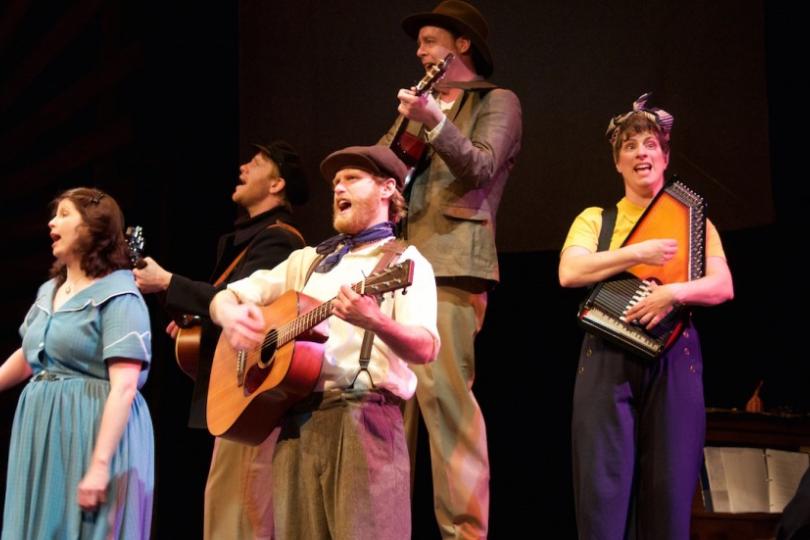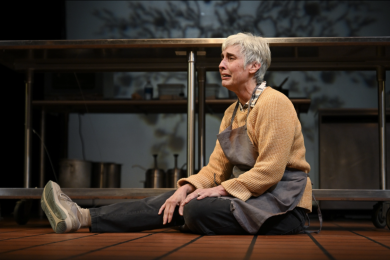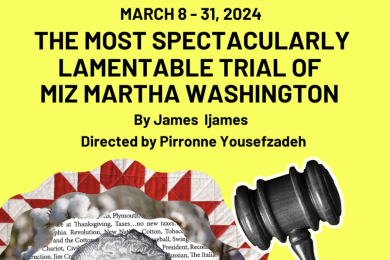Which Woody Guthrie is yours?

Few questions reveal more about an American’s soul than, “Which verses of ‘This Land Is Your Land’ do you know?”
The song is a friendly one with an easy melody that’s fun to sing. Americans, I believe, tend to encounter it as children or as parents—I cannot imagine that it isn’t still an enduring staple of elementary schools from sea to shining sea—grouping it together with other friendly, easy, fun songs like “Yankee Doodle” and “America the Beautiful.”
As with most songs and stories about America, patriots—if only the conservative ones—like to make garbage YouTube videos of it with overwrought vocals punctuating their favorite bits of visual treacle. In the case of “This Land Is Your Land,” that’s usually a series of pretty landscape photos taken, presumably, before a company leased the mineral rights from the Interior Department at bargain-basement prices.
As with most everything about this country’s history, though, there is another, more subversive side to the story.
The man, the artist, the activist
Enter, then, a fine example of theater based on an American historical figure that gives its subject its due without becoming a pedantic death march, Woody Guthrie’s American Song, playing now through September at Commonweal Theatre in Lanesboro.
There are many Woody Guthries available to talk about: the man, the artist, the activist. Peter Glazer’s script for American Song, first performed in 1989, concentrates on the artist. There’s a good reason for that. Namely, Woody the Artist is the Woody who’s easiest for everyone to love. He’s the Woody we agree on. Although Guthrie’s personal and political selves make appearances, they pop in only long enough to provide a bit of context for the next song. (To Commonweal’s credit, however, they provide the audience with a massive amount of contextual information in the program and in 22 pages of accompanying notes.)
American Song doesn’t go into too much detail about why Guthrie’s songs make some people angry and uncomfortable—even today—when they remain unedited. The script lets the man speak for himself, but perhaps at the expense of providing context you might need to gain a full appreciation of Guthrie’s knack for agitation. The words in the script were written by Guthrie himself, and the speeches serve as relatively brief bridges between—sometimes within—songs. There is a narrative here, one that follows Guthrie’s life more or less chronologically. But with two dozen songs total, this show is all about the music.
In the hands of director Tod Petersen, the production is superbly well-balanced. Petersen’s ensemble members complement each other nicely and distribution of the script’s sections is simultaneously skillfully equitable and shrewd. American Song is a shared monologue of sorts; each cast member plays Woody, and together they form a kind of folk music Voltron. At times, it’s apparent that a cast member is holding an instrument mainly because she/he could approximate playing it the most convincingly—but I think this group of Minnesota actors handles the singing, dancing, music-making and merriment as well as or better than any other actors you can imagine.
(One aside of thanks and praise: Other, less self-controlled directors, especially in Minnesota, would have gleefully given into the temptation to sneak in a few handfuls of easy jokes about Wisconsin’s far right, union-loathing governor, Scott Walker. I object to no Walker joke, mind you, but Americans have to stop thinking putting words in dead men’s mouths to get a few pandering yuks is the same as developing a coherent ideology.)
Working Man’s Communion
That said, I cannot help but want to pare this show down to four or five rabblerousing tunes and a couple short monologues, grab Ryan Lee and Gary Danciu (the performers who seem to come closest to being genuine folk musicians themselves) and place them smack in the middle of a union’s Labor Day picnic. It would be a hell of a lot of fun. These songs are entertaining on stage, but they can be a communion with the Almighty when they’re sung in a big crowd of the folks Guthrie meant to inspire and fortify with his music.
And that, my fellow workers, is the production’s strongest suit: Rather than the straight-up politics, it’s the joy and dignity of Guthrie’s work that shine brightest here.
Commonweal turns in near-perfect performances of two of Guthrie’s songs. Sitting at opposite ends of the emotional spectrum, “Union Maid” and “Deportee (Plane Wreck at Los Gatos)” pack punches that demonstrate quite well the range of Guthrie’s art. “Deportee” is crushing. “Union Maid” is triumphant. Both are performed with every ounce of common-man gravitas the cast has at its disposal and what they create is tremendous. My husband—who had never heard either song before—came with me to the show. He cried during “Deportee” and has been singing “Union Maid” to our cats for the last 48 hours. Bravo, Commonweal. Bravo.
But, of Guthrie’s songbook, it’s “This Land Is Your Land” that says the most about the singer. There are a number of verses and a number of versions of the lyrics to pick from, and that mix-and-match quality allows for big variations in the song’s meaning. At the end of the show when “This Land” makes its climactic appearance, I wasn’t surprised that the script selects the most radical version of the most radical verse: “One bright sunny morning in the shadow of the steeple / By the relief office I saw my people / As they stood hungry, I stood there wondering if / This land was made for you and me.” But many of the other verses are missing.
And that’s just fine. While it might not go as deep as I’d personally like, each part of this show honestly presents the work of one of American history’s indispensible artists. It avoids a pitfall that often traps shows dealing in American political history: American Song never changes the words or the meaning to fit into the contemporary political landscape. It keeps the historical, historical. And that gives the pieces an urgency that forced, updated versions never could have. Because a lot of people over a lot of decades sang a lot of songs as they suffered so we could be the people we are today. I’m happy that Commonweal sings those songs right.




